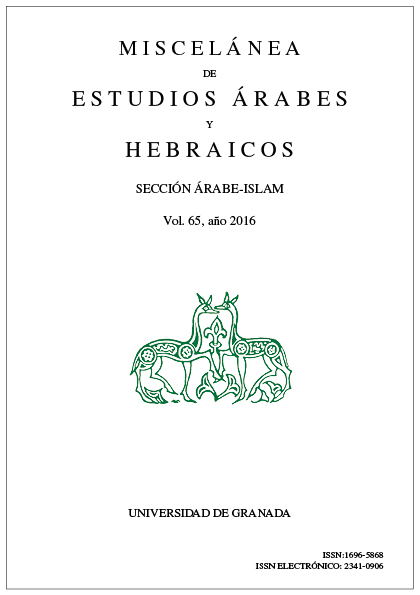Osman y Muhammad el-Attaz, príncipes musulmanes convertidos al cristianismo y su participación en la “Guerra Santa” contra el Islam
Mots-clés :
Domenico di San Tommaso, Baldassare Diego Loyola, Imperio OtomanoRésumé
El 15 de septiembre de 1667 moría en el Colegio Imperial de Madrid Muhammad el-Attaz, bautizado como Baldassare Diego Loyola, hijo del Príncipe Abdelwahid de Fez. La vida de Baldassare Diego Loyola transcurre paralela a la vida de otro ‘musulmán convertido al cristianismo’ y miembro de una orden religiosa: Osman, bautizado más tarde como Domenico di San Tommaso, alias Padre Ottomano. Ambos fueron capturados por los caballeros de la Orden de Malta mientras se dirigían a la Meca y vivieron algunos años en Malta, antes de trasladarse a Roma para incrementar el número de “celebridades” de la Europa Católica, otorgando cierto triunfo a la Contrarreforma. Este trabajo, además de tratar el paralelismo de estas dos vidas, se centra en el papel que el Padre Ottomano desempeñó en la etapa final de la Guerra de Candia e intenta mostrar que el pragmatismo político y económico no permitió un renacer de la Liga Santa contra los Otomanos.
Téléchargements
Téléchargements
Publié-e
Comment citer
Numéro
Rubrique
Licence
Los autores que publican en esta revista están de acuerdo con los siguientes términos:
1. Los autores conservan los derechos de autor y garantizan a la revista el derecho de ser la primera publicación del trabajo al igual que licenciado bajo una Creative Commons Attribution License que permite a otros compartir el trabajo con un reconocimiento de la autoría del trabajo y la publicación inicial en esta revista.
2. Los autores pueden establecer por separado acuerdos adicionales para la distribución no exclusiva de la versión de la obra publicada en la revista (por ejemplo, situarlo en un repositorio institucional o publicarlo en un libro), con un reconocimiento de su publicación inicial en esta revista.
3. Se permite y se anima a los autores a difundir electrónicamente (por ejemplo, en repositorios institucionales o en su propio sitio web) la versión publicada de sus trabajos (versión post-print del editor) o, en su defecto, el de la versión post-print del autor ya evaluada y aceptada. Esto puede dar lugar a intercambios productivos, así como a una citación más temprana y mayor de los trabajos publicados (Véase The Effect of Open Access).
4. La revista no se hace responsable de las opiniones vertidas por los autores.















